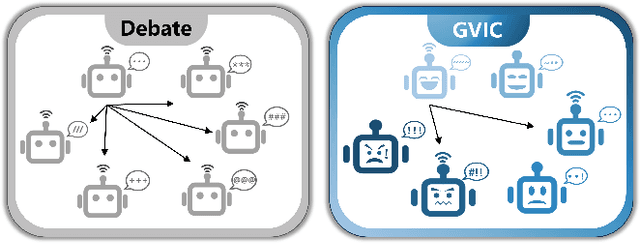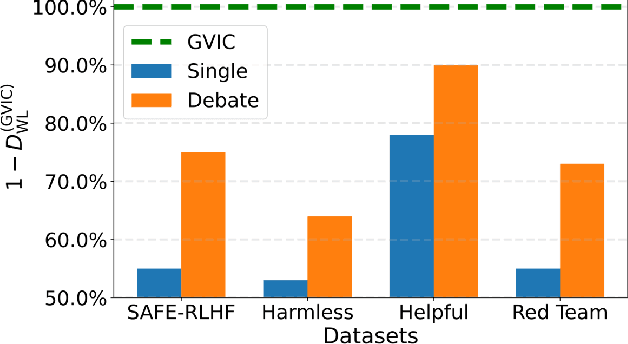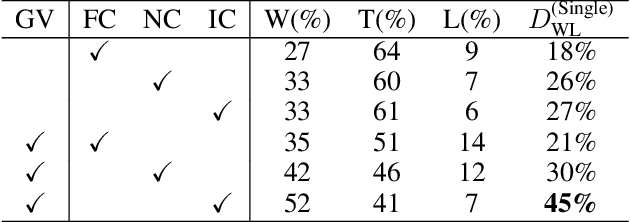Jintian Feng
Gradual Vigilance and Interval Communication: Enhancing Value Alignment in Multi-Agent Debates
Dec 18, 2024



Abstract:In recent years, large language models have shown exceptional performance in fulfilling diverse human needs. However, their training data can introduce harmful content, underscoring the necessity for robust value alignment. Mainstream methods, which depend on feedback learning and supervised training, are resource-intensive and may constrain the full potential of the models. Multi-Agent Debate (MAD) offers a more efficient and innovative solution by enabling the generation of reliable answers through agent interactions. To apply MAD to value alignment, we examine the relationship between the helpfulness and harmlessness of debate outcomes and individual responses, and propose a MAD based framework Gradual Vigilance and Interval Communication (GVIC). GVIC allows agents to assess risks with varying levels of vigilance and to exchange diverse information through interval communication. We theoretically prove that GVIC optimizes debate efficiency while reducing communication overhead. Experimental results demonstrate that GVIC consistently outperforms baseline methods across various tasks and datasets, particularly excelling in harmfulness mitigation and fraud prevention. Additionally, GVIC exhibits strong adaptability across different base model sizes, including both unaligned and aligned models, and across various task types.
COMET: "Cone of experience" enhanced large multimodal model for mathematical problem generation
Jul 16, 2024Abstract:The automatic generation of high-quality mathematical problems is practically valuable in many educational scenarios. Large multimodal model provides a novel technical approach for the mathematical problem generation because of its wide success in cross-modal data scenarios. However, the traditional method of separating problem solving from problem generation and the mainstream fine-tuning framework of monotonous data structure with homogeneous training objectives limit the application of large multimodal model in mathematical problem generation. Addressing these challenges, this paper proposes COMET, a "Cone of Experience" enhanced large multimodal model for mathematical problem generation. Firstly, from the perspective of mutual ability promotion and application logic, we unify stem generation and problem solving into mathematical problem generation. Secondly, a three-stage fine-turning framework guided by the "Cone of Experience" is proposed. The framework divides the fine-tuning data into symbolic experience, iconic experience, and direct experience to draw parallels with experiences in the career growth of teachers. Several fine-grained data construction and injection methods are designed in this framework. Finally, we construct a Chinese multimodal mathematical problem dataset to fill the vacancy of Chinese multimodal data in this field. Combined with objective and subjective indicators, experiments on multiple datasets fully verify the effectiveness of the proposed framework and model.
 Add to Chrome
Add to Chrome Add to Firefox
Add to Firefox Add to Edge
Add to Edge